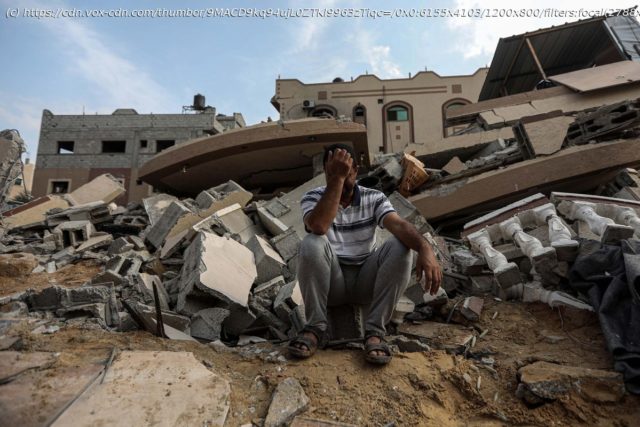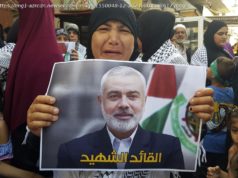The discussion around the Israel-Hamas war is broken. The deaths of civilians in Israel and Gaza is neither a symbol of decolonization nor self-defense.
In southern Israel, Hamas terrorists broke into a room where a family of five was hiding and slaughtered every one of them. In Gaza, a father wrapped in gauze held his child, butchered in an Israeli strike, for the last time.
These scenes pose a very simple moral test: Do you believe that it is wrong for innocent people to suffer in this way? That mass death should be deplored, not defended, regardless of who its victims are? If the answer to either of those questions is no, then you are a morally broken person.
Depressingly, the Israel-Palestine discourse has exposed many of them.
Almost immediately after news of the attack broke, celebrations broke out among a group of Western leftists, hailing Hamas’s incursion as an act of “decolonization.” This was not merely a handful of isolated individuals, but included journalists with large followings, professors, and student organizations at elite universities. At a rally supported by the Democratic Socialists in America in New York, the crowd cheered Hamas’s success.
This cheerleading for murderous terrorists is ghoulish and self-discrediting: “a betrayal of the left’s most fundamental values,” as New York magazine’s Eric Levitz writes.
It is also, in a way, revealing. The moral failures of the fringe left show us how not to think about the ongoing horrors in Israel and Gaza — and, in doing so, point to a better way.
Currently, the Israeli government is preparing a ground invasion of Gaza that threatens to come with unimaginable human costs. The callousness with which they are talking about civilian deaths in Gaza is appalling. An anonymous Israeli official told Israeli reporter Alon Ben David that their response would turn Gaza into “a city of tents.” A parliamentarian from the ruling Likud party said, on national television, that Israel should not concern itself with the safety of any Gazans who “chose” to stay in the Gaza Strip. (With crossings into Egypt and Israel blocked, Gazans could not leave if they wanted.)
This, too, is evil.
I do not pretend to know exactly what the right choice is for Israel going forward. But I know that if the Israeli Defense Forces do slaughter civilians indiscriminately, the Israeli government will be committing abuses on moral par with those of Hamas.
I also know that justice for Israelis and Palestinians cannot be found through a mode of thinking that says only one kind of life is holy.
We are not limited to a binary choice between the murderous theocrats of Hamas and the murderous theocrats of Israel’s far right. There are good people, kind people, in both Israel and the Palestinian territories — brave souls looking to help those on the other side, amid unspeakable tragedy, and together make the land they share safe for everyone. Some of those people have already been killed by the other side; more will likely die in the coming days.
Those of us outside the region need to follow their moral example. Only by grounding our vision in universal humanity, the idea that every life is sacred and all people deserve our respect, can we ever figure out a way to break the cycle of violence dragging Israelis and Palestinians into hell.Language, cruelty, and moral evasion
The language of mass murder we’re hearing is intentionally bloodless.
When the Israeli military kills Palestinians, they speak of “collateral damage,” not families blown apart. When the defense minister talks about cutting off electricity and water to Gaza, he speaks only of fighting Hamas “animals” — not of the hospital patients and formula-fed babies likely to die as a consequence.
You see the same among Hamas’s Western apologists. They do not gleefully post pictures of Israeli children executed in their beds. Instead, they cheer pictures of Hamas breaking down the border fence with Gaza, calling it “decolonization” — ignoring that Hamas fighters broke down those fences to commit intolerable acts of mass slaughter.
A case in point of this moral evasion is an essay by Tariq Ali, a prominent British public intellectual. Ali’s essay furiously goes through a litany of abuses committed by Israel against Palestinians, all real enough and worthy of condemnation.






